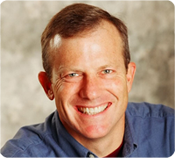Why the church needs to talk about science…

The church needs to talk about all of creation because Scripture does. Psalm 24:1 tells us, “The earth is the Lord’s and all that fills it.” We learn from St. Paul’s letter to the Colossians that Jesus Christ was the agent of creation and that all of creation exists for him: “all things were created through him and for him.” (Col. 1:15). Numerous other references could be added, all pointing to Jesus as Lord of all the entire cosmos—not just of the church, not just of our spiritual lives. But the entire cosmos!
There’s also the elephant-in-the-room reason for talking about all of creation. Issues of faith and science are of interest and concern for lots of folks. But the church mostly acts as if they don’t exist. Pastor Greg Cootsona, co-leader of the Scientists in Congregations Project, explains the significance of the disconnect.
Most of us have heard the numbers by now. Thirty percent of the generation born in the ’80s and ’90s check the box labeled “none” when asked about their religious affiliation. A top reason they disengage from faith is their perception that faith and science inevitably conflict.
Notre Dame sociologist Christian Smith has conducted the most substantial study of emerging adults and published the results for 18–23 year olds in his book Souls in Transition. His findings offer a stark challenge to the church:
· Is it true that “the teachings of science and religion often ultimately conflict”? More than two thirds of Smith’s respondents agreed.
· Would they say, “My views on religion have been strengthened by discoveries of science”? Well more than half (57 percent) disagreed. …
In You Lost Me: Why Young Christians Are Leaving the Church, David Kinnaman details, in six chapters, the major reasons that emerging adults (18–29 years old) are losing interest in our congregations. One chapter is simply titled, “Antiscience.” The next generation sees the church as standing against the findings of science. Consider one of the most startling juxtapositions in Kinnaman’s book: 52 percent of youth-group teens aspire to science-related careers like biology, chemistry, engineering, and technology, along with the medical and health-related professions. And yet how many pastors or youth workers had addressed issues of faith and science in the past year? One percent. …
Cootsona’s experience with the Scientists in Congregations Project suggests that the important thing is to start the conversation about faith and science.
The good news, I’ve found, is that we don’t have to have all the answers to our kids’ (or our own) questions about the complex intersection of science and faith. We just have to be in the game. If we’re willing to address the topic, people will listen eagerly and engage with us. If we’re not even attempting to address it, we leave emerging adults to assume that science and faith are not only part of separate domains, but can’t ever get along.
Since 2011, 35 congregations in the United States, one in Canada, and one in France have taken up this challenge as part of … Scientists in Congregations. My colleague David Wood and I awarded grants to churches willing to take the dialogue between science and faith further, drawing on their own pastors and the scientists already in their congregations. So far the project has produced some amazing results, transforming stories, and a list of key topics every congregation should—and can—address:
1. How to begin the discussion of science and theology by being clearer about what science (and theology) does and doesn’t claim for itself.
2. The history of the science–faith debate, including its many odd detours and dead ends.
3. The relationship between evolution and creation.
4. The insights of the emerging field of neuroscience.
5. How to connect contemporary scientific cosmology—the study of the universe’s structure and origins—with the biblical view of the world.
Cootsona ends on an encouraging note.
I wasn’t always sure I had the right answers, and I was afraid most people wouldn’t be interested in hearing them. Now I know that the interest is there—inside and outside the church. And we don’t have to have perfectly produced solutions—we just have to start the conversation. A whole lot of “nones” are waiting.
“When Science Comes to Church” was published online by Christianity Today. Greg Cootsona is Associate Pastor at Bidwell Presbyterian Church in Chico, California and serves as co-leader of the Scientists in Congregations Project.


 March 20, 2014
March 20, 2014 







No comments yet... Be the first to leave a reply!